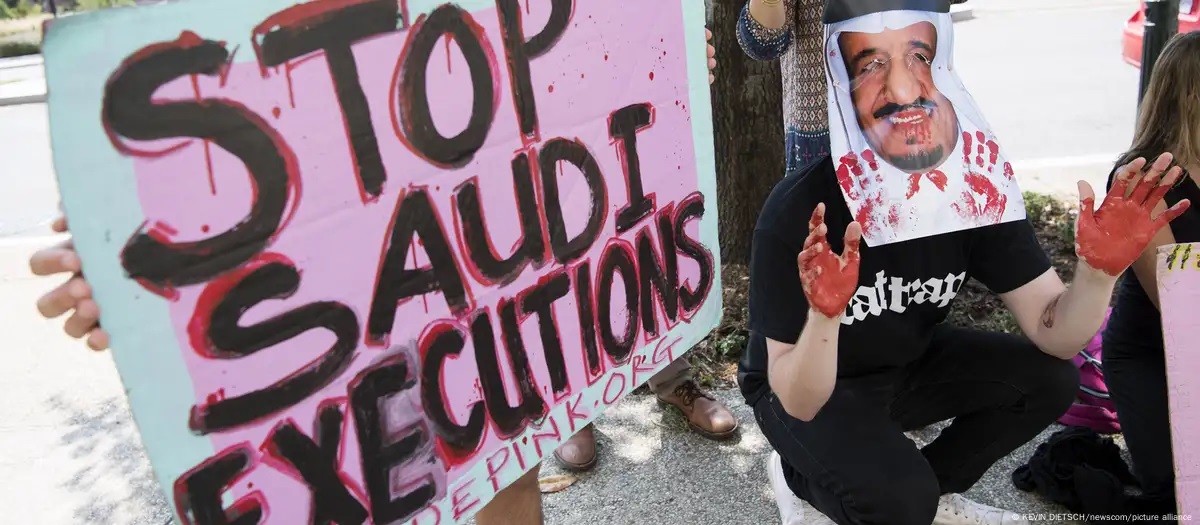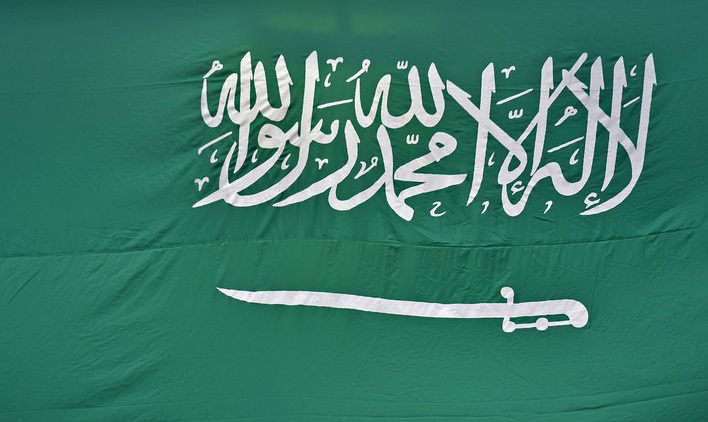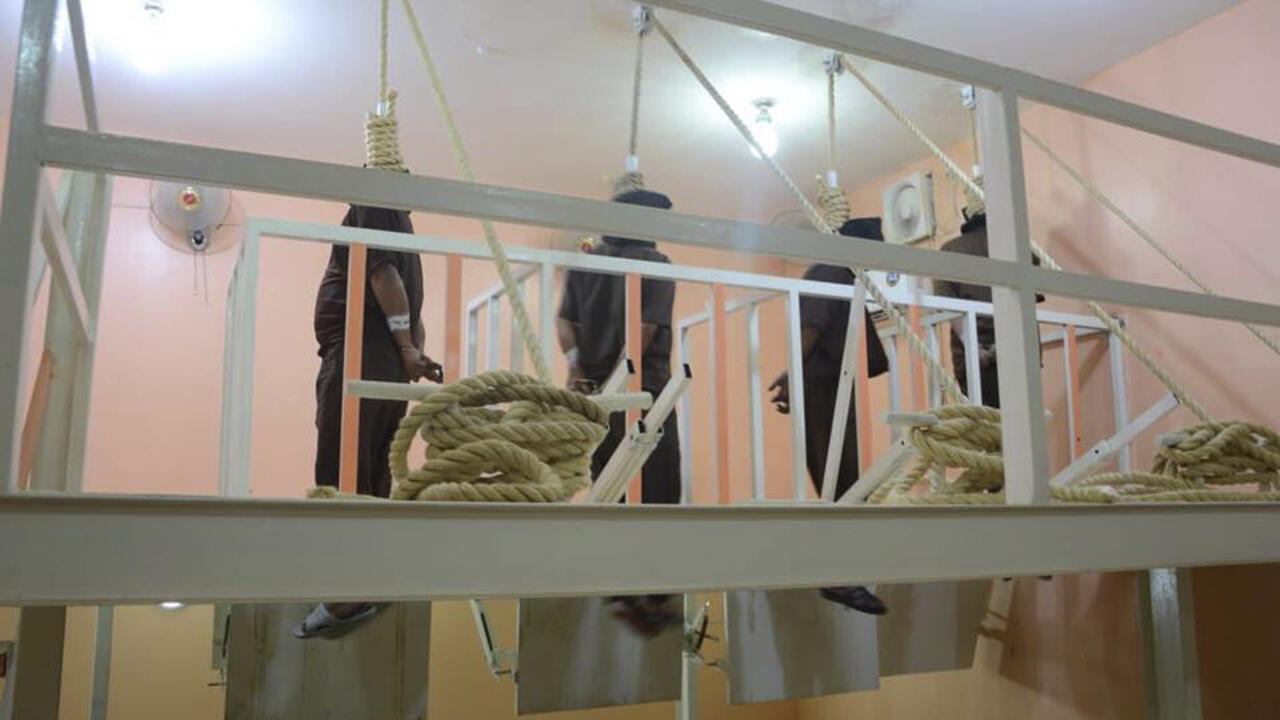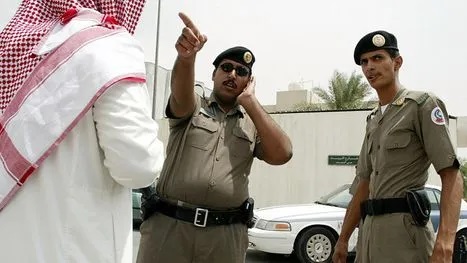
SANA'A September 07. 2024 (Saba) - With the aim of suppressing opponents of the Al Saud regime.. the intensity of executions in the Kingdom of Saudi Arabia has escalated sharply in the first half of this year, with an increase of 42 percent over the same period last year.
In the latest execution of opponents of the Al Saud regime witnessed by the Kingdom, the death sentence was carried out against Abdul Majeed al-Nimr (59 years old) last Saturday. He is a father of four children from Qatif, a province inhabited by a Shiite majority located in the east of the Kingdom, after he was convicted of joining a "terrorist cell affiliated with Al-Qaeda" .. according to the Saudi media.
The European Saudi Organization for Human Rights (a non-governmental organization based in Berlin) condemned in a statement last night the execution of a Saudi citizen convicted of "terrorism" .. accusing the Saudi regime authorities of forging documents confirming his affiliation with Al-Qaeda.
The organization said: This execution is "new evidence of the lack of any trust in all stages of the justice system in Saudi Arabia", considering it "a clear message confirming Saudi Arabia's complete disregard for its obligations and promises, and its continuation of killings that violate international laws."
The organization confirmed that the number of executions in Saudi Arabia has increased sharply in the first half of this year, an increase of 42 percent over the same period last year.
The Saudi regime has long been subject to severe criticism from human rights organizations due to executions and its judicial system. Saudi Arabia has already executed more than 140 people during the current year 2024, according to a census by Agence France-Presse.
Last year, 2023, the Saudi regime executed 172 people after executing 196 people in 2022, which means tripling the number compared to 2021, and seven times compared to 2020.
A few days ago, Amnesty International called for the "immediate and unconditional release" of a Saudi citizen whose death sentence was overturned, after he was convicted of the sentence for denouncing corruption and human rights violations in the Kingdom on social media.
The Specialized Criminal Court in Saudi Arabia, which was established in 2008 to consider terrorism cases, sentenced teacher Mohammed al-Ghamdi to death in July of last year on charges related to posts interpreted as calling for "disrupting the security of society and conspiring against the government" via his account on the "X" platform.
Human rights activists said at the time that the case was based at least in part on posts criticizing the government and supporting "prisoners of conscience," including clerics Salman al-Awda and Awad al-Qarni. The case of al-Ghamdi (56 years old) took on a different dimension after Saudi Crown Prince Mohammed bin Salman himself confirmed the "validity" of the details of his case in a rare interview with the American Fox News network last September.
Since bin Salman became crown prince in 2017, the Saudi regime has been pursuing a reform agenda known as "Vision 2030" that aims to transform the previously closed kingdom into a global tourist and commercial destination and adopt social reforms.
But this is accompanied by continued repression of dissent, as the kingdom is criticized for its human rights record and restrictions on the right to expression in particular, according to "Agence France-Presse".
“Some executions are not even for recognizable ordinary crimes, but for political crimes such as endangering national unity or undermining community security,” said Kenneth Roth, former executive director of Human Rights Watch and currently a visiting professor at Princeton University’s School of Public and International Affairs. “Amnesty International believes that there is a use of the judiciary to silence dissent.”
The head of the Saudi Human Rights Commission, Hala bint Mazyad Al-Tuwaijri, said earlier this month that “her country informed the Human Rights Council in Geneva that the kingdom is determined to move forward towards achieving the best international standards in protecting and promoting human rights, based on its established principles and values, and the will of its leadership that places the human being above all considerations.” But the increase in executions suggests otherwise.
Observers see the campaign against those with different opinions and their supporters as contradictory to “Saudi Vision 2030,” a vision of social and economic reforms that has become a pet project for the kingdom’s de facto leader, Crown Prince Mohammed bin Salman, who introduced the reform package in 2017 in an attempt to diversify the economy and reduce Saudi Arabia’s dependence on oil sales.
Observers say the rise in executions “shows that Saudi Crown Prince Mohammed bin Salman is no political reformer at all,” says human rights expert Kenneth Roth. The recent surge in executions also contradicts a statement made earlier this month by Hala al-Tuwaijri, head of Saudi Arabia’s Human Rights Commission. Ali al-Dubisi, who heads the European Saudi Organization for Human Rights, sees these words as hollow and devoid of meaning, saying: “Real human rights would allow for criticism, monitoring and accountability in the authoritarian system.. He asks: “Where are Saudi Arabia’s promises to limit the use of the death penalty for non-violent crimes?”
Lina al-Hathloul, the sister of recently released feminist activist Loujain al-Hathloul, who works as communications and monitoring officer at the London-based human rights organization ALQST, says: “If there was freedom of expression in Saudi Arabia, people would start expressing their opinions on various matters, not just the political system.” She adds: “The more freedom there is, the more criticism there will be, but also success.. “This is what is required for a vibrant society.”
Human Rights Watch and 26 other organizations said in a recent joint statement: In April 2024, a Saudi appeals court approved the execution of two Saudi men for protest-related crimes allegedly committed by “They committed it as children.. Saudi authorities should immediately stop executing juvenile offenders.”
While Joy Shea, a Saudi researcher at Human Rights Watch, said: “Saudi Arabia invests billions of dollars in major entertainment and sporting events to distract from its rights-repressive environment, while those accused of committing crimes as children await execution.. Saudi Arabia should rescind the decision to execute Al-Manasif and Al-Mabiouq, and begin fulfilling its promise to end the death penalty for children.”
The Convention on the Rights of the Child, to which Saudi Arabia is a party, includes an absolute ban on the death penalty for crimes committed by children.. Human Rights Watch opposes the death penalty in all countries and under all circumstances because it is unique in its cruelty and finality, and is inevitably tainted by arbitrariness and error.
In the latest execution of opponents of the Al Saud regime witnessed by the Kingdom, the death sentence was carried out against Abdul Majeed al-Nimr (59 years old) last Saturday. He is a father of four children from Qatif, a province inhabited by a Shiite majority located in the east of the Kingdom, after he was convicted of joining a "terrorist cell affiliated with Al-Qaeda" .. according to the Saudi media.
The European Saudi Organization for Human Rights (a non-governmental organization based in Berlin) condemned in a statement last night the execution of a Saudi citizen convicted of "terrorism" .. accusing the Saudi regime authorities of forging documents confirming his affiliation with Al-Qaeda.
The organization said: This execution is "new evidence of the lack of any trust in all stages of the justice system in Saudi Arabia", considering it "a clear message confirming Saudi Arabia's complete disregard for its obligations and promises, and its continuation of killings that violate international laws."
The organization confirmed that the number of executions in Saudi Arabia has increased sharply in the first half of this year, an increase of 42 percent over the same period last year.
The Saudi regime has long been subject to severe criticism from human rights organizations due to executions and its judicial system. Saudi Arabia has already executed more than 140 people during the current year 2024, according to a census by Agence France-Presse.
Last year, 2023, the Saudi regime executed 172 people after executing 196 people in 2022, which means tripling the number compared to 2021, and seven times compared to 2020.
A few days ago, Amnesty International called for the "immediate and unconditional release" of a Saudi citizen whose death sentence was overturned, after he was convicted of the sentence for denouncing corruption and human rights violations in the Kingdom on social media.
The Specialized Criminal Court in Saudi Arabia, which was established in 2008 to consider terrorism cases, sentenced teacher Mohammed al-Ghamdi to death in July of last year on charges related to posts interpreted as calling for "disrupting the security of society and conspiring against the government" via his account on the "X" platform.
Human rights activists said at the time that the case was based at least in part on posts criticizing the government and supporting "prisoners of conscience," including clerics Salman al-Awda and Awad al-Qarni. The case of al-Ghamdi (56 years old) took on a different dimension after Saudi Crown Prince Mohammed bin Salman himself confirmed the "validity" of the details of his case in a rare interview with the American Fox News network last September.
Since bin Salman became crown prince in 2017, the Saudi regime has been pursuing a reform agenda known as "Vision 2030" that aims to transform the previously closed kingdom into a global tourist and commercial destination and adopt social reforms.
But this is accompanied by continued repression of dissent, as the kingdom is criticized for its human rights record and restrictions on the right to expression in particular, according to "Agence France-Presse".
“Some executions are not even for recognizable ordinary crimes, but for political crimes such as endangering national unity or undermining community security,” said Kenneth Roth, former executive director of Human Rights Watch and currently a visiting professor at Princeton University’s School of Public and International Affairs. “Amnesty International believes that there is a use of the judiciary to silence dissent.”
The head of the Saudi Human Rights Commission, Hala bint Mazyad Al-Tuwaijri, said earlier this month that “her country informed the Human Rights Council in Geneva that the kingdom is determined to move forward towards achieving the best international standards in protecting and promoting human rights, based on its established principles and values, and the will of its leadership that places the human being above all considerations.” But the increase in executions suggests otherwise.
Observers see the campaign against those with different opinions and their supporters as contradictory to “Saudi Vision 2030,” a vision of social and economic reforms that has become a pet project for the kingdom’s de facto leader, Crown Prince Mohammed bin Salman, who introduced the reform package in 2017 in an attempt to diversify the economy and reduce Saudi Arabia’s dependence on oil sales.
Observers say the rise in executions “shows that Saudi Crown Prince Mohammed bin Salman is no political reformer at all,” says human rights expert Kenneth Roth. The recent surge in executions also contradicts a statement made earlier this month by Hala al-Tuwaijri, head of Saudi Arabia’s Human Rights Commission. Ali al-Dubisi, who heads the European Saudi Organization for Human Rights, sees these words as hollow and devoid of meaning, saying: “Real human rights would allow for criticism, monitoring and accountability in the authoritarian system.. He asks: “Where are Saudi Arabia’s promises to limit the use of the death penalty for non-violent crimes?”
Lina al-Hathloul, the sister of recently released feminist activist Loujain al-Hathloul, who works as communications and monitoring officer at the London-based human rights organization ALQST, says: “If there was freedom of expression in Saudi Arabia, people would start expressing their opinions on various matters, not just the political system.” She adds: “The more freedom there is, the more criticism there will be, but also success.. “This is what is required for a vibrant society.”
Human Rights Watch and 26 other organizations said in a recent joint statement: In April 2024, a Saudi appeals court approved the execution of two Saudi men for protest-related crimes allegedly committed by “They committed it as children.. Saudi authorities should immediately stop executing juvenile offenders.”
While Joy Shea, a Saudi researcher at Human Rights Watch, said: “Saudi Arabia invests billions of dollars in major entertainment and sporting events to distract from its rights-repressive environment, while those accused of committing crimes as children await execution.. Saudi Arabia should rescind the decision to execute Al-Manasif and Al-Mabiouq, and begin fulfilling its promise to end the death penalty for children.”
The Convention on the Rights of the Child, to which Saudi Arabia is a party, includes an absolute ban on the death penalty for crimes committed by children.. Human Rights Watch opposes the death penalty in all countries and under all circumstances because it is unique in its cruelty and finality, and is inevitably tainted by arbitrariness and error.


